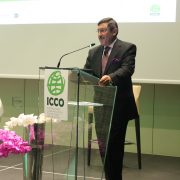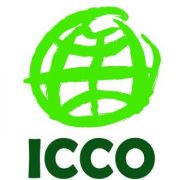12 International PR Developments To Watch
Written by: David Gallagher
Senior Partner/CEO Ketchum Europe
President, ICCO
Sometime over the past decade, the PR agency business evolved from ‘burgeoning’ to ‘nearly established’ (my benchmarks) as a global industry, with national trade associations representing thousands of agencies operating around the world.
There remain zones of uncharted geography, and much to do to better link the established markets (one of the aims of ICCO, which I have the privilege of chairing) but there’s little doubt that the PR agency business has gone viral, from Azerbaijan to Zagreb.
As more consultancies enter the global market directly, or indirectly as their home markets are drawn into international competition, it’s worth looking at some of the developments that will shape the industry over the next five to 10 years.
Here’s a quick run-down of a dozen trends I’m keeping an eye on – all based more on observation than analysis, so feel free to quibble, reject or endorse:
- Consolidation is king. Agencies of all sizes, independent or publicly held, will come together in one fashion or another to better serve clients and reduce overheads.
- Demand for fluid talent will topple the pyramid. The need for highly specialist skills will alter the ‘pyramid of experience’ model that has governed our business for so long, with senior professionals supported by experienced managers and just-starting-out juniors.
- It will also alter the way in which new talent joins agencies. New partnerships will emerge between agencies and universities, organized pools of freelance specialists and government employment / apprenticeship programs to supply the demand for niche expertise.
- Native advertising will feed the media beast. The lines between ‘true’ editorial or journalistic content will continue to blur with promotional content as media titles embrace an irresistibly lucrative revenue stream.
- Structured journalism may save the day. OK, save the day might be extreme, but as ‘classic’ journalism evolves to digital-friendly format, we may see ways to preserve the objective aims of news reporting with the demands of digital advertisers and social media consumers.
- English will remain the lingua francafor business and international PR. As much influence as Mandarin has in the world overall, I don’t see it overtaking English anytime soon in boardrooms outside of China.
- Translation software will be disruptive. Technology will diminish the importance of the language in which content is created.
- Africa will boom. Expect mergers and acquisitions throughout sub-Saharan African to outpace those in Europe and Asia.
- Hub-and-spoke network models will be enhanced – or replaced. Old international models, based on a ‘railway view’ of the world with regional hubs serving surrounding geographic markets with content and creative concepts for local activation will find far greater efficiencies by streamlining the responsibilities of the lead and implementation agencies. Or, they will be replaced altogether by models built to accommodate markets by their level of development, language or regulations – traits other than geographic proximity, in other words.
- Measurement may finally find its footing, but monitoring could be the greater market opportunity. Agencies will continue to progress in the effort to fund and demonstrate the impact of successful PR programs, and some may succeed in finding clients who’ll help pay for the confirmation. But real-time, fully customized global media monitoring could find a paying customer pool more quickly.
- Integration is the norm. ‘Traditional’ PR agencies that focus on earned media output are rapidly giving way to those capable of offering services across all channels, or partnering with others that complement the earned offer. This will continue to challenge trade associations, trade media and awards competitions trying to determine what’s PR and what’s something else.
- A new kind of agency leader is emerging. Most of us in senior positions got here by surviving in a system that hasn’t changed in decades and, let’s be honest, by being in proximity to global centres like New York and London. As our workforces evolve and become more fluid and transitory, we’ll see global leaders popping up from all over the place. Which is a good thing.
Interested in these or related topics? You might seriously consider attending the ICCO Global PR Summit in Milan this October. Some of the best thinkers in the world will be discussing exactly these and many other ideas that will make PR continue to thrive as powerful tool and resource for business, government and civil society.












